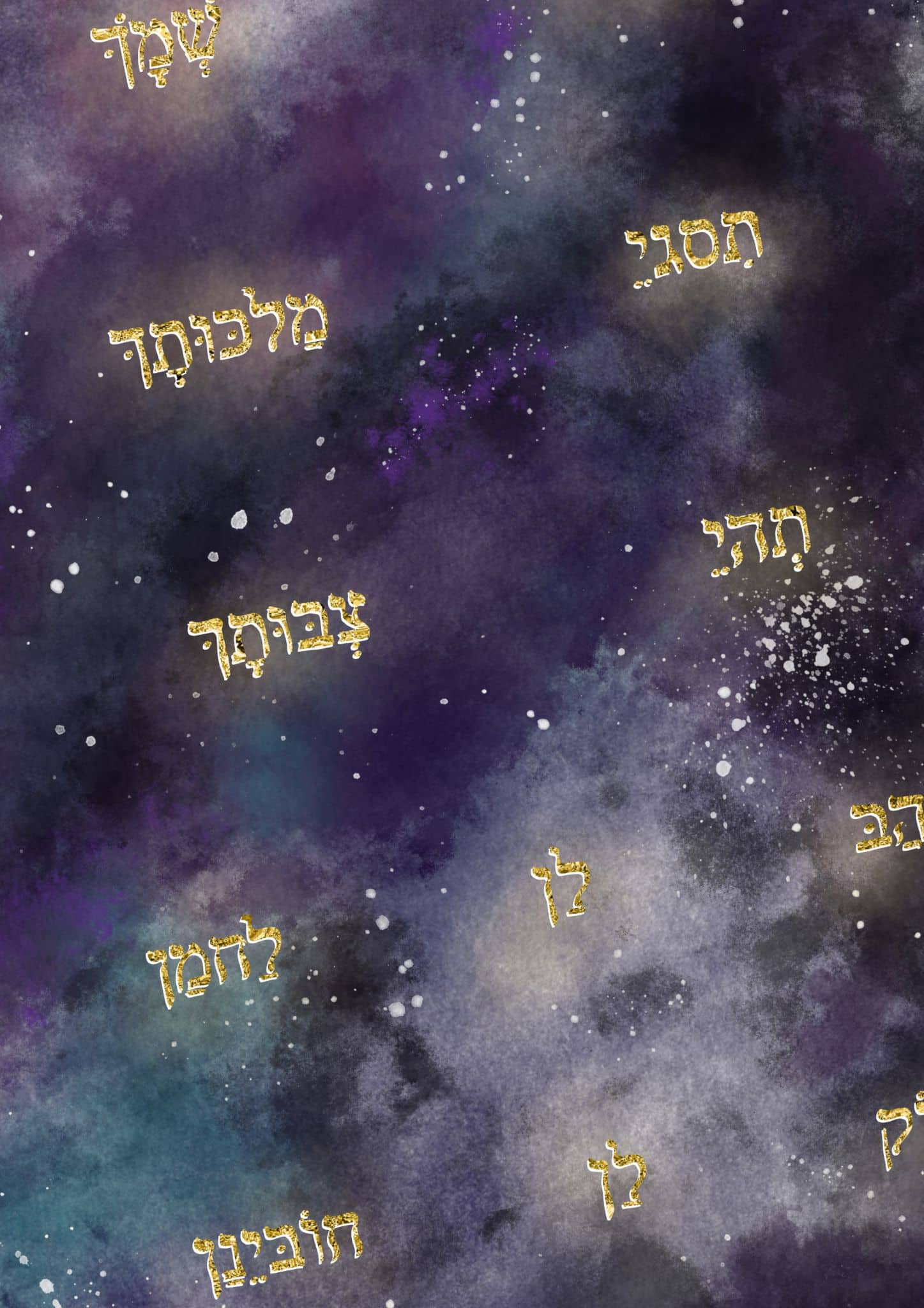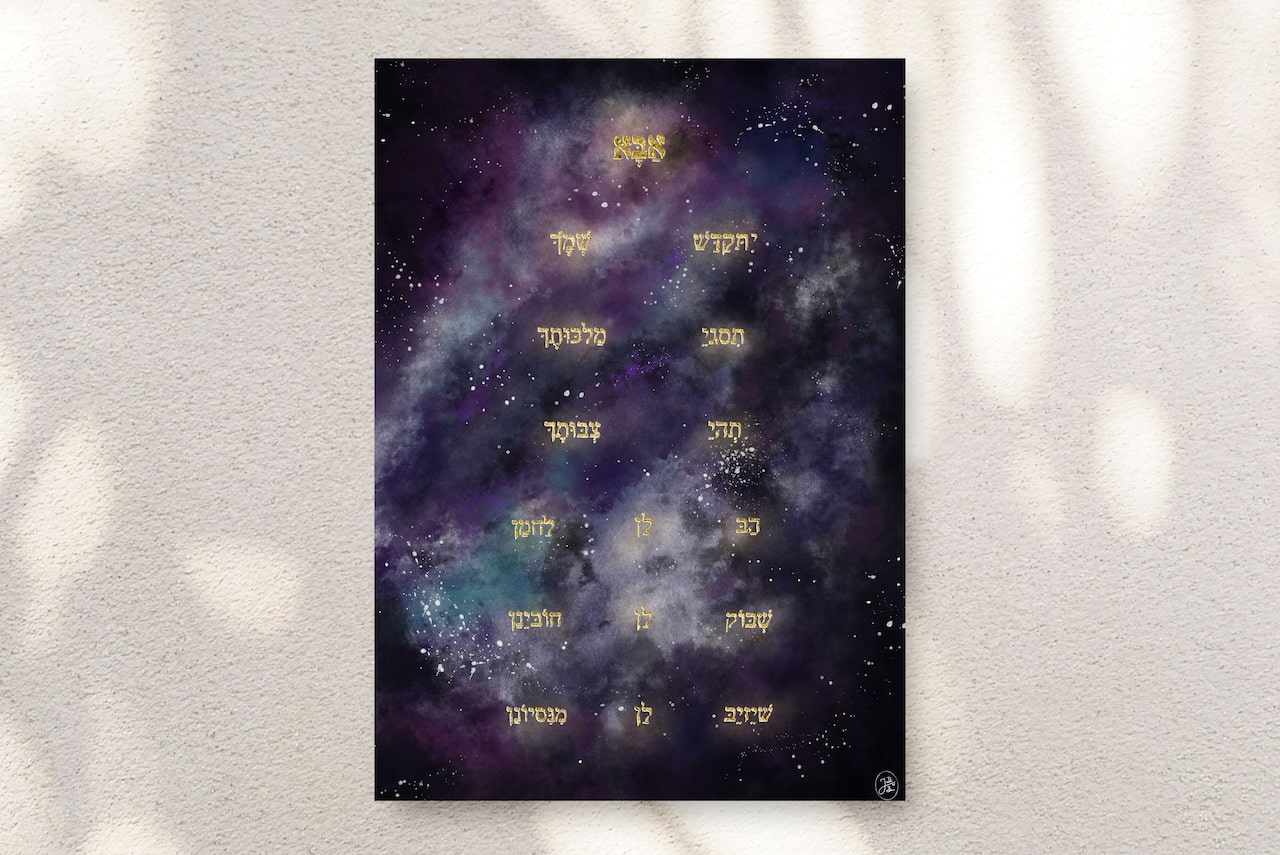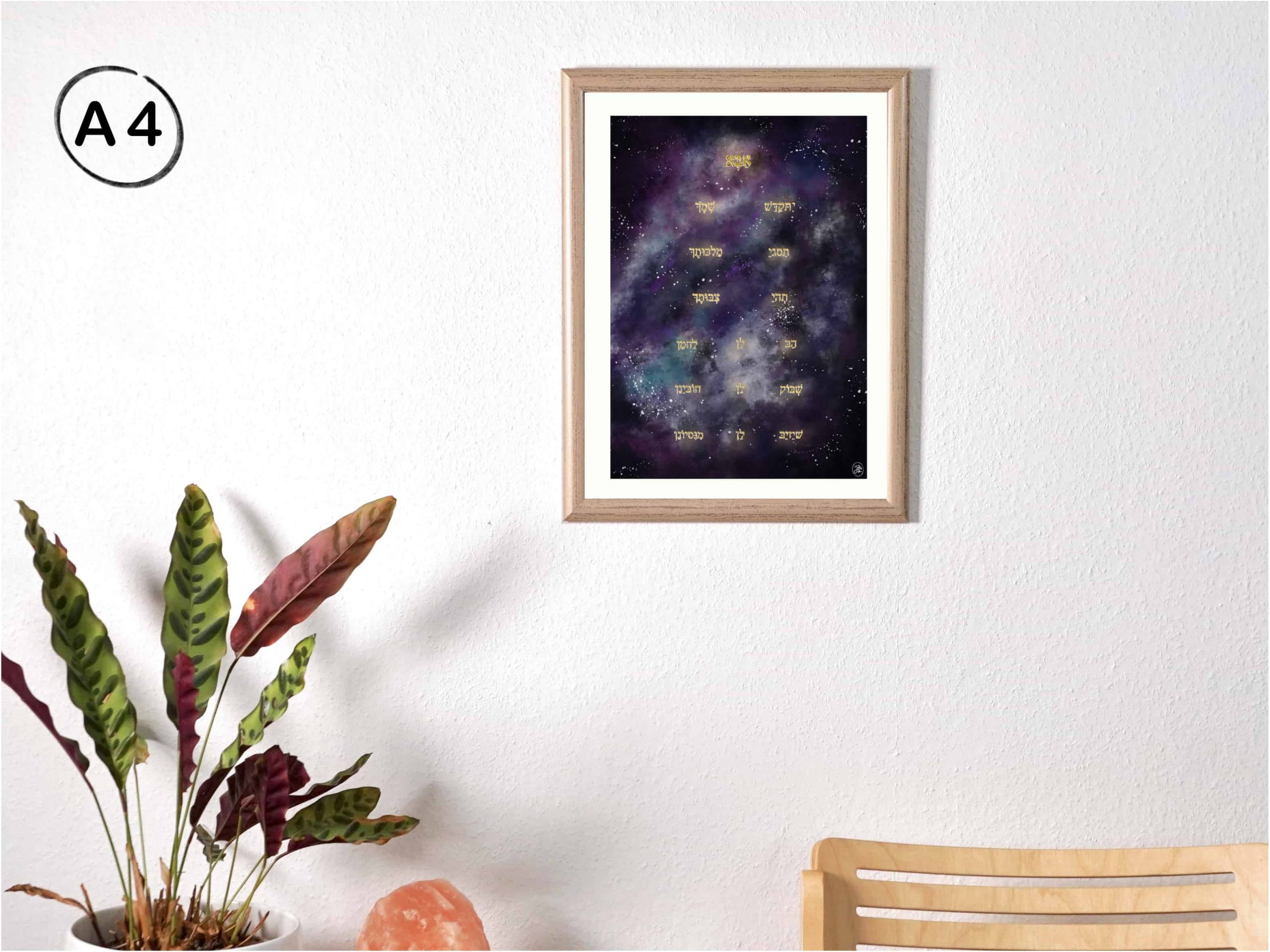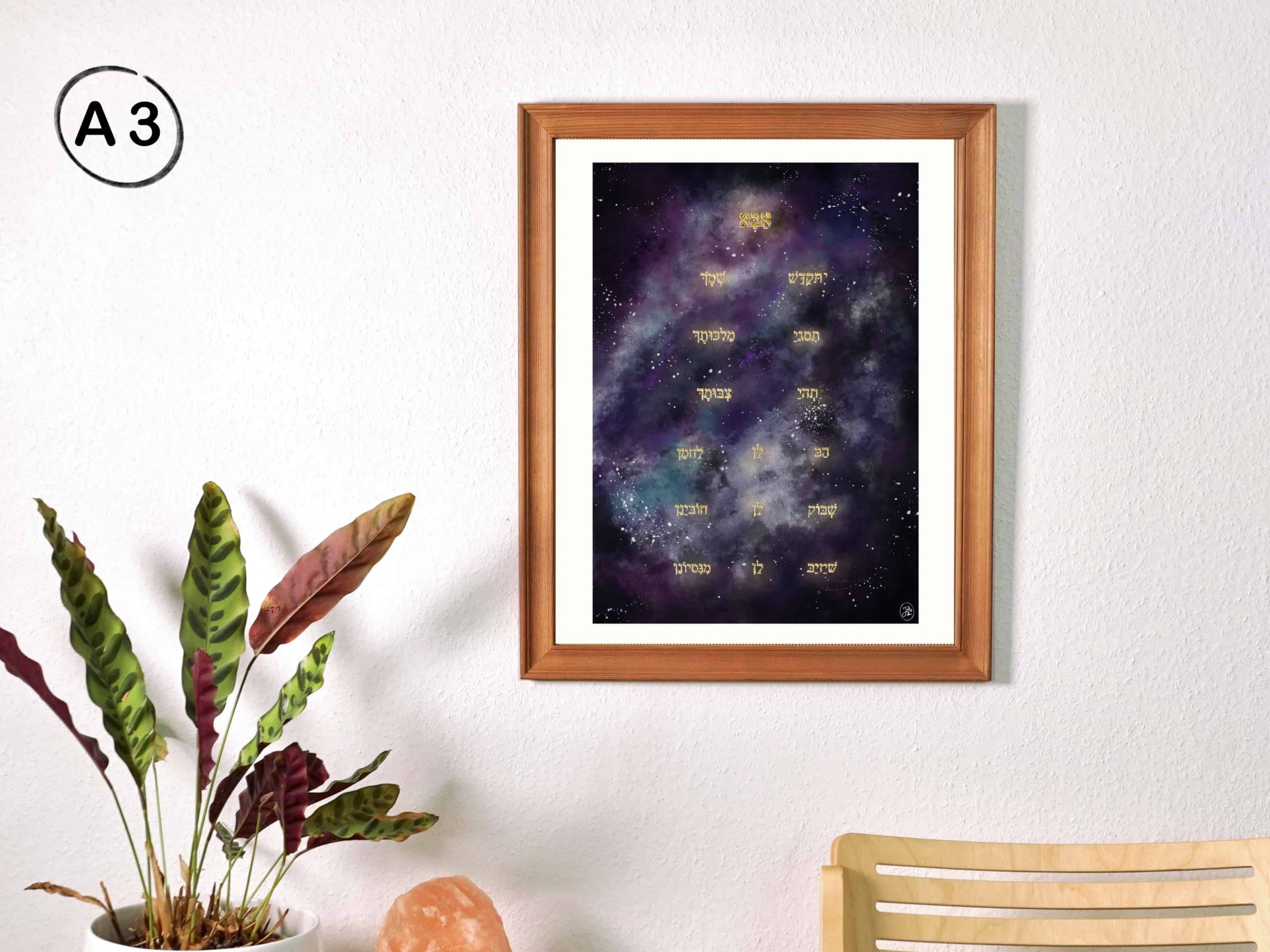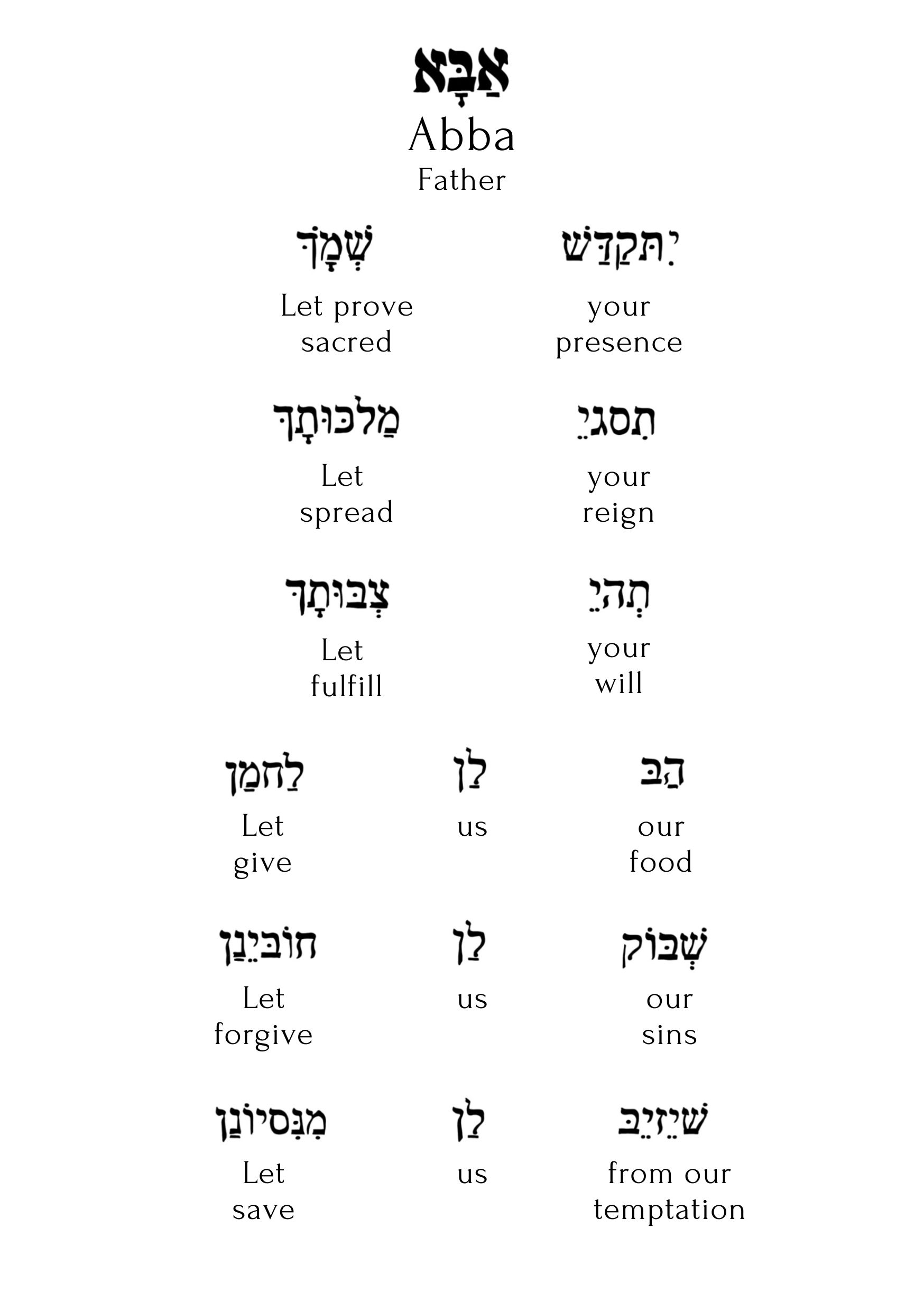KLEINE SHOP-PAUSE 🌻
Da ich gerade unterwegs bin, macht der Shop eine Pause.
Reservierung von Gemälden und Auftragsarbeiten sind möglich!!!
Ab dem 11. August kannst Du hier wieder alles ganz normal bestellen.
Möchtest Du die CD "WAVES" oder mein Buch "ICH BIN DA" bestellen?
Das geht auch von unterwegs 😉
Kontaktiere mich gerne hier // shop@juliadomenica.com //
Danke für Dein Verständnis! 🙏
Handwritten Lord’s Prayer – in Aramaic, the original language of Jesus Christ – on hand painted watercolor galaxy.
Detailed explanation of the Aramaic text below.
Paper & Dimensions:
High quality giclée print on fine art paper, Natural Matt, with a paper thickness of 200g/sqm.
The print format corresponds to approximately 21 cm in length and 29,7 cm in height (A4) or 29,7 cm in length and 42 cm in height (A3).
Printing:
Color printing with high quality and durable printing with Claria Photo HD ink.
Certified:
Signed on the front, stamped on the back and comes with an art certificate.
Shipping:
The costs for shipping depend on your location. Just send your address along with your order request and I will inform you about the shipping costs.
For order request please contact me via art@juliadomenica.com and I will provide you with the bank account or PayPal for payment. Thank you.
THE LORD’S PRAYER IN THE ORIGINAL LANGUAGE OF JESUS CHRIST
Common text stock of the Lord’s Prayer by the evangelists Matthew and Luke, translated from Greek into Jesus’ language, Aramaic.
The poetic disposition of the text was adopted. Below is the English translation.
The preceding “Abba” = father as crowning noun,
– followed by a three-line verse with two units, with triple end rhyme as well as double beginning and end rhyme,
– followed by a three-line verse with three units each, with triple end, double beginning as well as triple internal rhyme.
The rhymes refer to the Aramaic form of the text.
This information is based on the translation of Günter Schwarz, who has spent more than 50 years on the correct translation of the Gospels and has published various literature on the subject.
Source used here: “The Gospel of Jesus” (“Das Jesus-Evangelium”)
He says: “In 7 lines of 16 words, more poetry is hardly possible. Its sum cannot be a coincidence. It must therefore spring from a conscious will to create.”
At that time, the poetic form of religious communication was common in the Jewish faith.
In this version of the “Lord’s Prayer” Günter Schwarz has corrected mistranslations from Aramaic into Greek and omitted later additions based on handwritten traditions.
